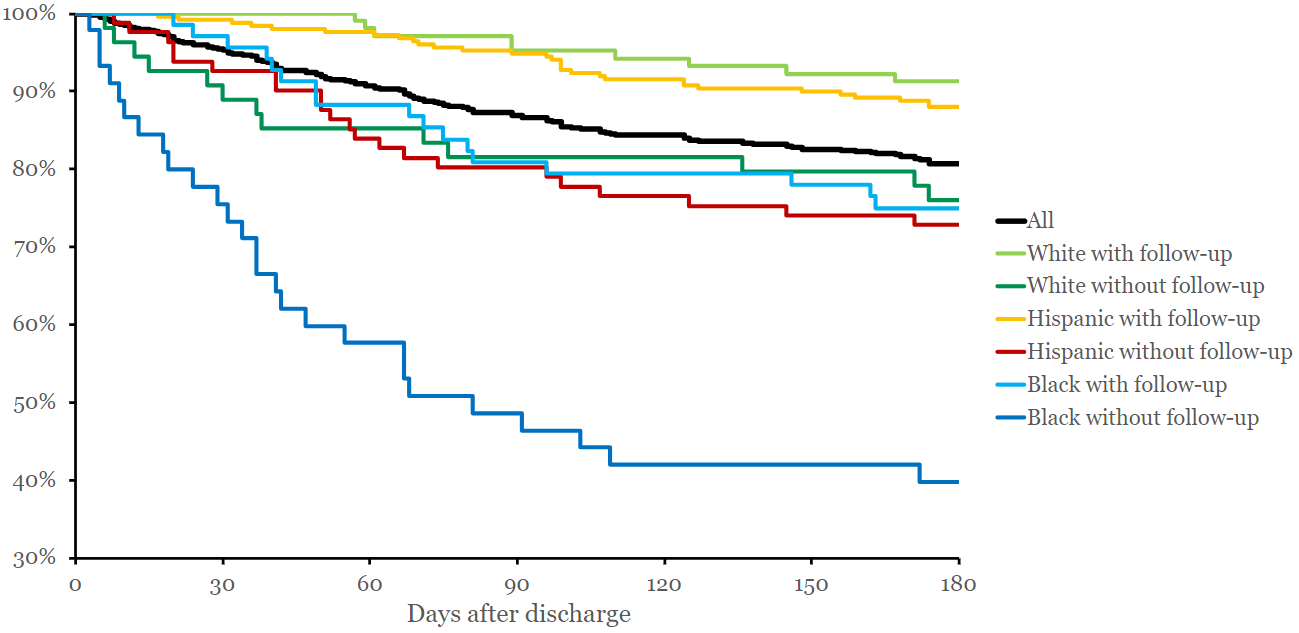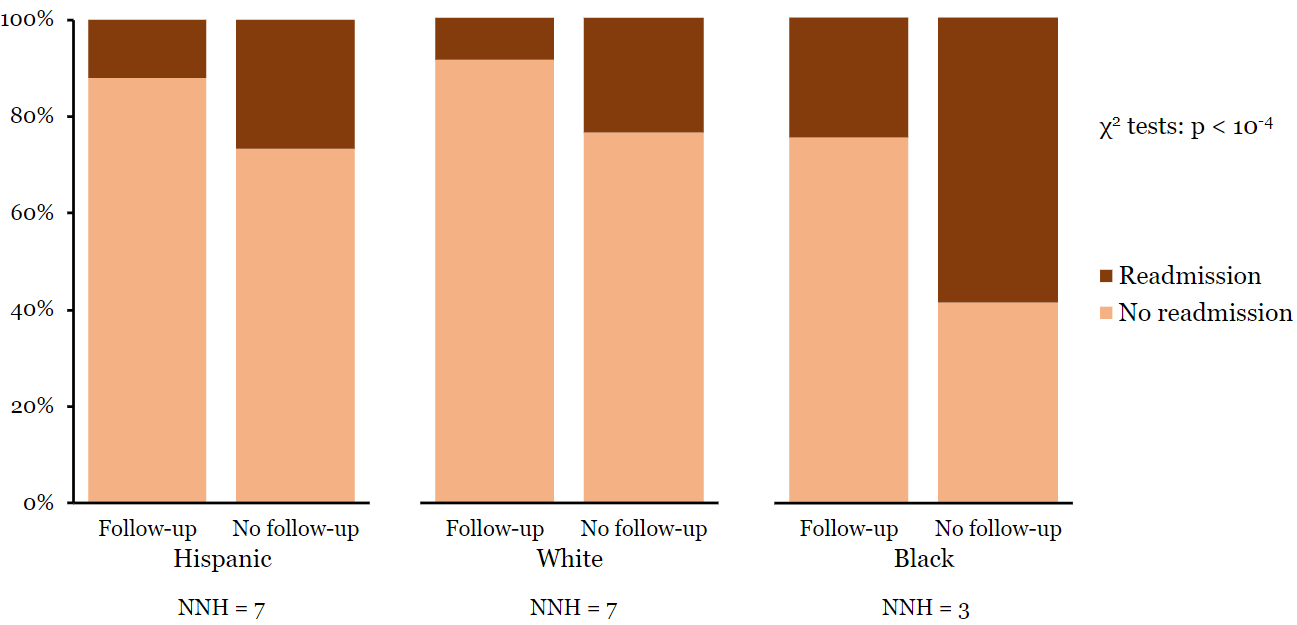Background: Diabetic ketoacidosis (DKA) is a life-threatening complication of diabetes mellitus that is increasing in frequency, and yet is preventable with adequate outpatient management. Studies have shown that children with diabetes in minority populations experience more frequent DKA admissions, possibly due to inequities in healthcare access. We examined whether disparities by race/ethnicity exist in DKA admissions and outpatient follow-up in our local healthcare system and the impact on readmission rates for diabetic ketoacidosis.
Methods: We reviewed DKA admissions to the Pediatric Intensive Care Unit from January 2020 through July 2022 and subsequent outpatient visits with Pediatric Endocrinology, looking for disparities by race/ethnicity. We defined a failure in follow-up to be the lack of a completed outpatient visit either within 6 months of hospital discharge or before another admission for DKA (whichever was soonest). We then looked at readmissions over a 6-month time frame and compared the proportion without readmissions between our Black, Hispanic, and White patients.
Results: Out of 640 DKA admissions during the study period, the proportions of admissions by Black, Hispanic, and White patients differed significantly from the demographics of children enrolled in Medicaid in the hospital catchment area (p < 0.05). There were also significant disparities in successful follow-up among racial/ethnic categories (p < 0.05), with Black patients most likely to not have a completed outpatient visit and Hispanic patients least likely to have failure in follow-up. In comparing readmissions, there was a significant increase in proportion of Black patients readmitted for DKA. For every three Black patients who did not attend a follow up appointment, there was one additional readmission for DKA (compared to seven for our Hispanic patients and seven for our White patients).
Conclusions: We found evidence for disparities in both health outcomes (DKA admissions) and healthcare services (outpatient follow-up) among racial/ethnic categories at our institution, specifically with our Black patients having a higher proportion of readmissions for DKA. Our next step is to conduct a root cause analysis to identify opportunities to reduce disparities for our pediatric patients with diabetes by surveying patients during DKA readmissions and while at an outpatient follow up visit, specifically focusing on social determinants of health. By identifying possible barriers to receiving care outpatient, we hope to reduce readmissions for DKA and address the racial disparities we have found.


